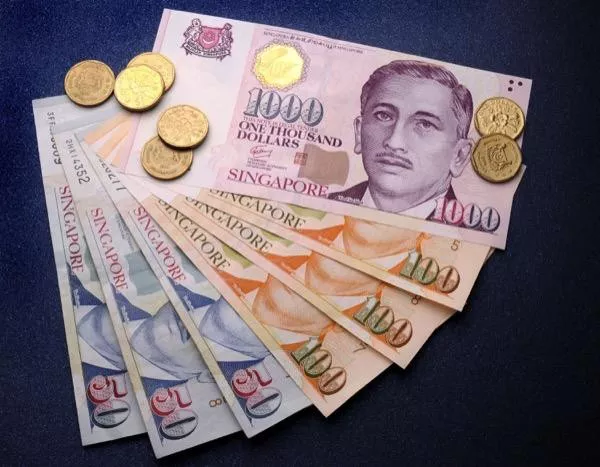Singapore, a global financial center and trade hub in Southeast Asia, has long been known for the strength and stability of its currency, the Singapore dollar (SGD). Despite being a small nation with limited natural resources, Singapore has managed to forge an economic powerhouse, attracting international investors and businesses. In this article, we will delve into the various factors behind the remarkable strength of the Singaporean currency. From prudent fiscal policies to robust economic fundamentals, we will examine the key drivers that have contributed to Singapore’s currency resiliency.
Strong Economic Fundamentals
Stable Economic Growth
Singapore’s consistent economic growth has played a pivotal role in bolstering the strength of its currency. The nation has achieved impressive GDP growth rates over the years, thanks to its focus on diversification, innovation, and a pro-business environment. By encouraging sectors such as manufacturing, finance, and logistics, Singapore has built a resilient economy that attracts foreign investment and fosters sustainable growth.
Low Inflation Rates
The Monetary Authority of Singapore (MAS) has adopted a vigilant approach to maintaining low inflation rates. Through prudent monetary policy measures, including managing interest rates and exchange rates, Singapore has effectively kept inflation in check. This stable price environment not only enhances investor confidence but also ensures the purchasing power of the SGD remains intact.
Robust Financial Sector
Singapore boasts a world-class financial sector that consistently ranks among the top globally. The city-state is home to numerous multinational banks, asset management firms, and insurance companies, which contribute significantly to its economic prowess. The strong presence of these institutions promotes stability, attracts foreign capital, and reaffirms Singapore’s status as a regional financial hub.
Sound Fiscal Policies
Balanced Budgetary Practices
Singapore’s government has consistently maintained prudent fiscal policies, ensuring a balanced budget and low levels of public debt. This commitment to financial discipline has helped Singapore avoid the pitfalls associated with excessive borrowing and unsustainable deficits. The sound fiscal framework provides confidence to investors, shielding the domestic economy from external shocks and increasing the attractiveness of the SGD.
Accumulation of Foreign Reserves
Singapore has implemented a strategic policy of accumulating substantial foreign reserves over the years. These reserves serve as a buffer against economic uncertainties and provide stability during times of market volatility. The MAS employs an active management approach to safeguard reserves, optimizing their deployment for the benefit of the economy and the SGD’s strength.
Credible Governance and Institutional Frameworks
Singapore’s reputation for clean and efficient governance, coupled with robust institutional frameworks, has been instrumental in attracting investment and fostering economic stability. The country consistently ranks high on global measures of transparency and ease of doing business, offering a reliable environment for both local and international investors. The strong governance practices ensure the effective implementation of policies and regulations that support currency strength.
Trade and Export Competitiveness
Strategic Geographical Location
Situated at the crossroads of major shipping routes, Singapore enjoys a strategic geographical advantage. The nation’s world-class port infrastructure and efficient logistics network make it a preferred choice for international trade. By facilitating seamless connectivity between global markets, Singapore has built a strong export-oriented economy, driving demand for its currency.
Diversified and Knowledge-Based Economy
Singapore’s emphasis on diversification and knowledge-based industries has positioned it favorably in the global marketplace. The country has nurtured key sectors such as information technology, biotechnology, and pharmaceuticals, creating a highly skilled workforce and promoting innovation. This diversification shields the economy from overreliance on any particular sector, reducing vulnerability to external shocks and bolstering the resilience of the SGD.
Free Trade Agreements (FTAs) and Economic Integration
Singapore’s proactive approach to forging free trade agreements has expanded its market access and facilitated international trade. The nation’s FTAs, including the landmark Comprehensive and Progressive Agreement for Trans-Pacific Partnership (CPTPP), have opened doors to new opportunities and reduced trade barriers. This integration into global value chains has enhanced Singapore’s export competitiveness, creating a positive impact on the strength of its currency.
Central Bank Monetary Policies
Managed Floating Exchange Rate System
The MAS operates a managed floating exchange rate system, whereby the SGD is allowed to fluctuate within a specified band against a basket of currencies. This approach provides flexibility while maintaining stability and helps mitigate excessive volatility. The MAS periodically adjusts the band to ensure that the SGD remains competitive and aligns with economic fundamentals.
Independent Monetary Policy
The independence of Singapore’s central bank enables it to pursue monetary policies tailored to the specific needs of the domestic economy. By targeting inflation rather than exchange rates, the MAS can respond swiftly to changes in economic conditions, promoting stability and confidence in the currency.


